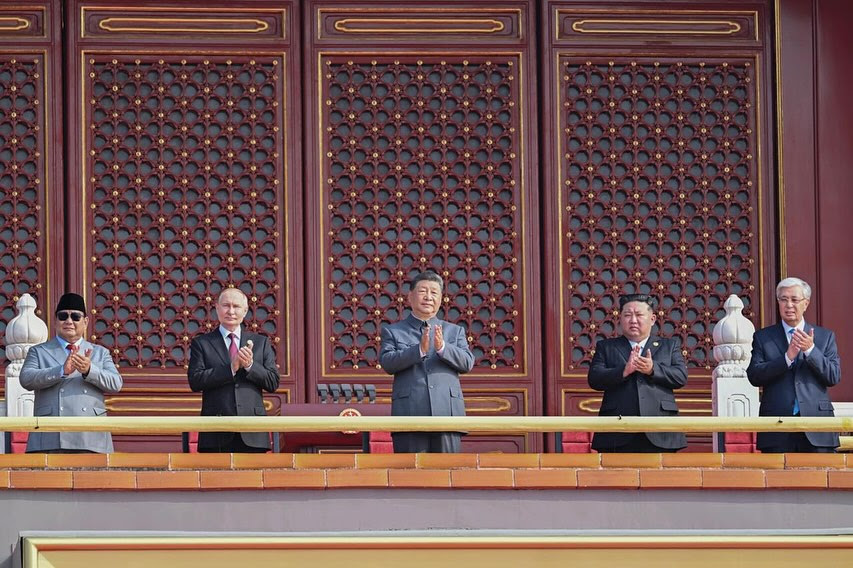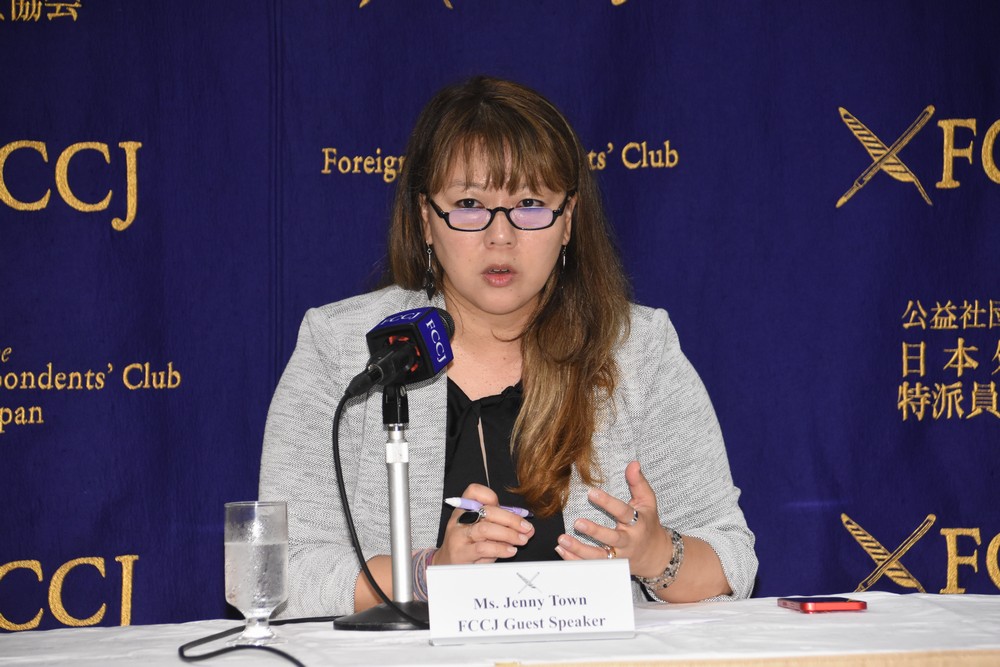Issue:
October 2025
Kim Jong-un’s loose alliance with China and Russia doesn’t necessarily spell the end of nuclear talks, expert tells FCCJ event

Once dismissed as a hermit kingdom ruled by a dynasty as strange as it was brutal, North Korea bet its survival on one day building a nuclear bomb. Now, its leader, Kim Jong-un, has flipped the script, gaining international prestige – albeit exclusively outside the Western orbit – and wrong-footing his nemeses.
Under Kim, who came to power in late 2011, North Korea has become a bona fide nuclear power – although doubts remain over its actual capabilities – a participant in a European war, and, along with Russia, part of a new “axis of upheaval” centered on China.
In September, Kim attended the Victory Day military parade in Beijing, held to mark the 80th anniversary of Japan’s defeat in World War II. Seated to Xi Jinping’s left, with Russian President Vladimir Putin to the Chinese leader’s right, Kim watched as state-of-the-art tanks and missiles rolled through Tiananmen Square. He looked confident and relaxed, and for good reason: he was not there to make up the numbers, but as a key member of an anti-Western bloc.
Not long ago many wrote off Kim’s regime off as a pariah, destined for isolation it would have to endure with meager resources, forever known as a dynasty more interested in weapons of mass destruction than in the welfare of its people.
UN-led sanctions, though, have been stripped of any meaning now that Russia and China no longer vote in line with the other three permanent members of the security council. That supposes sanctions were of any use from the start: North Korea has spent decades test-firing missiles, developing more sophisticated launch systems and baiting its arch enemies the U.S. and South Korea with increasingly provocative statements and micro-aggressions.
Xi and Putin have undoubtedly raised Kim’s prestige, but is North Korea a truly functioning state, or is its recent resurgence only skin-deep?
Jenny Town, director of 38 North, a website known for its in-depth analysis of North Korea, believes the regime’s ties with Russia and China have bought it the luxury of time.
“North Korea’s not destitute. It survived the pandemic and sanctions," Town said during a recent event at the FCCJ. “It’s becoming more deeply embedded in a broader political network.”
Although China has long been North Korea’s main trading partner, aid provider and political backer, Kim’s new comprehensive partnership with Russia has tied his regime more firmly to Moscow’s war machine.
Intelligence estimates say thousands of North Korean soldiers have been sent to fight in Russia’s war on Ukraine, with about 600 killed – men whom Kim eulogized as “martyrs with indomitable mettle who have helped to write the new chapter in this country’s history”.
While much of the world has been focusing on the North’s nuclear arsenal, Town said its battlefield contributions and cooperation with Russia had also pushed its conventional capabilities forward.
“They’re getting modern combat experience. They’re field testing their missiles,” she said, adding that submarine propulsion technology could be added to the military hardware, including fighter jets, Russia has reportedly sent to Pyongyang in return.
Town said the Pyongyang-Moscow alliance would endure. “More and more, we hear Russian scholars talk about North Korea as a key partner in this anti-Western united bloc.”
North Korea no longer hides the fact that possesses nuclear weapons, describing itself as a “responsible nuclear state” that will never give up its arsenal, despite repeated calls from Washington, Seoul and Tokyo for the denuclearization of the Korean peninsula.
Could the U.S. ever accept that status quo? Town said that to make progress, any future talks would have to take account of Pyongyang’s agenda and address issues beyond disarmament. “In order to move forward, all sides have to be addressed, not just North Korea’s unilateral disarmament,” she said.
Washington must now decide if it wants a relationship with North Korea or to simply neutralize the threat it poses, according to Town. If those goals aren’t clear, a fourth meeting between Kim and Donald Trump – something both men have said they would consider – could do more harm than good.
Amid talk of new threats to Western hegemony, it is important not to overlook inter-Korean relations, which deteriorated dramatically under South Korea’s former president Yoon Suk Yeol.
Under the new liberal president, Lee Jae Myung, Seoul has taken steps to ease tensions, removing loudspeakers from along the countries’ heavily armed border and halting Voice of Freedom broadcasts for the first time in 15 years. Yet those gestures have barely moved the needle.
At home, meanwhile, Lee faces a polarized public and rising anti-U.S. sentiment after the immigration raid on Hyundai and LG’s plant in Georgia. His room for maneuver is shrinking.
“If U.S. foreign policy continues on this trajectory, credibility will erode,” Town said. “There may be a recalibration of the U.S.-South Korean alliance down the line.”
“Kim Jong-un used to think a relationship with the U.S. would bring about legitimacy and prestige,” she added, noting that Pyongyang had been careful not to antagonize Washington, keeping the door open to a Kim-Trump summit.
The U.S., on the other hand, appears to be drifting, as its leader lashes out at his perceived enemies at home and keeps his country’s historical allies on tenterhooks – all of which is music to Kim’s ears.
“Time is on our side,” he declared last month, once against dismissing denuclearization and claiming that sanctions had only strengthened his resolve.
In a clear reference to the fates that had befallen other U.S. nemeses Colonel Muammar Gaddafi and Saddam Hussein, Kim added: “The world already knows full well what the United States does after it makes a country give up its nuclear weapons and disarms. We will never give up our nuclear weapons.”
Anthony Trotter, a multi-role journalist and cameraman at ABC News, is committed to clear and accurate reporting. Beyond the lens, Anthony practices Aikido, integrating its principles of discipline and harmony into his life. “In every story, a thread of truth weaves through the noise.”


